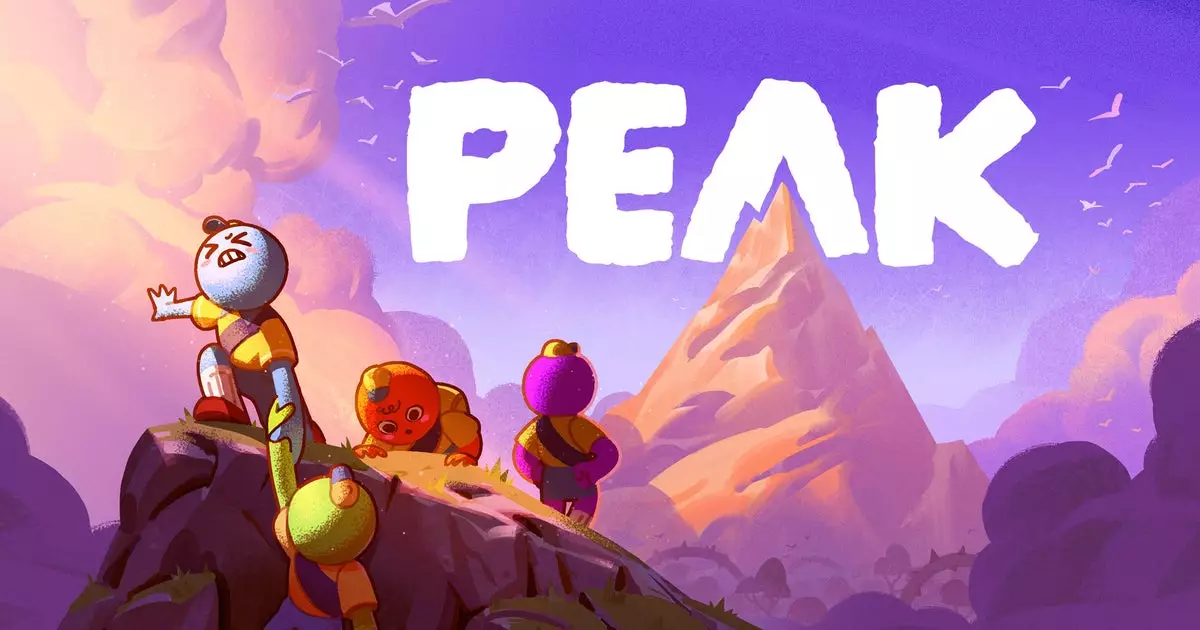In the realm of video game development, the most innovative ideas often emerge from unusual or collaborative settings. “Peak,” a co-op mountain climbing game, is a prime example of this phenomenon. Distilling creativity through teamwork, the developers from Aggro Crab and Landfall came together during a game jam—a sacred space for creativity where the pressure of conventional design is lifted. This collaborative effort took place not in a structured office but in the lively atmosphere of Airbnb in Hongdae, South Korea, transforming a temporary living space into a creativity hub where magic happened.
The concept of “Peak” was simmering long before this gathering. It began as a vague idea pitched in a hot tub in Sweden, where casual conversations propelled brainstorming about wandering scouts and the delightful chaos that could ensue. The environment fostered informal discussions that evolved into tangible game design. With both developers seasoned in the industry, it wasn’t mere luck that birthed “Peak”; instead, it was a symphony of shared aspirations and diverse ideas converging into something spectacular.
Fueling the Fire of Competition
Jealousy—a powerful motivator when channeled correctly—served as a catalyst for the creation of “Peak.” Nick Kaman, head of Aggro Crab, openly admits that their drive to create stemmed from witnessing the success of “Content Warning,” which was developed in an impressively short timeframe. This realization flipped the developers’ understanding of what it meant to create a game, casting traditional timelines and methodologies aside. The excitement was palpable upon being invited to join Landfall for the next jam, and the team wasted no time putting their plan into action.
This impulse to ride the wave of competition instead of succumbing to defeat is an essential theme within the gaming industry. It highlights how transformative experiences—like experiencing envy in a healthy context—can lead to genuine innovation. Rather than viewing other developers as competition, the Aggro Crab team recognized an opportunity to learn, collaborate, and create something fresh under the pressure of a definitive deadline.
A Different Kind of Work Ethic
The month they spent in Korea was not merely about creating a game; it was a redefinition of what work could be. The underlying theme of the experience was joy interwoven with hard work. Kaman emphasized that, despite the intensity, it was the “most fun” he ever had developing a game. This notion of enjoyment as a crucial aspect of creativity is often overlooked in a culture that prizes productivity and profit. The success of “Peak” serves as evidence that a happy, collaborative environment fosters deeper creativity than isolated, rigid development processes.
The team dedicated their time not only to game mechanics but also to engaging with their surroundings, sharing meals, and weaving conversations into their project. The result was a game that embodies the essence of camaraderie and the spirit of adventure—a literal climb towards artistic achievement.
Success Beyond Numbers
While “Peak” has successfully sold a substantial number of copies, sales figures alone don’t capture its essence. Many people tend to equate success with profitability, but this case illuminates a broader perspective. The journey of creating “Peak” exemplifies that game development thrives on robust collaboration and emotional engagement, rather than merely focusing on quick returns or flash-in-the-pan ideas.
In an industry that often emphasizes blockbuster launches, “Peak” reminds us that sometimes, the greatest innovations come from playful experimentation, rather than hitting every mark on a checklist of conventional success. The collective expertise of the developers enriches the game’s design, and their shared experiences become integral to its narrative.
The story of “Peak” is not just about making a game; it’s about the transformative power of creative collaboration, the complexity of emotions fueling artistic endeavors, and the revolutionary mindset that values fun and spontaneity as much as skill and structure.

